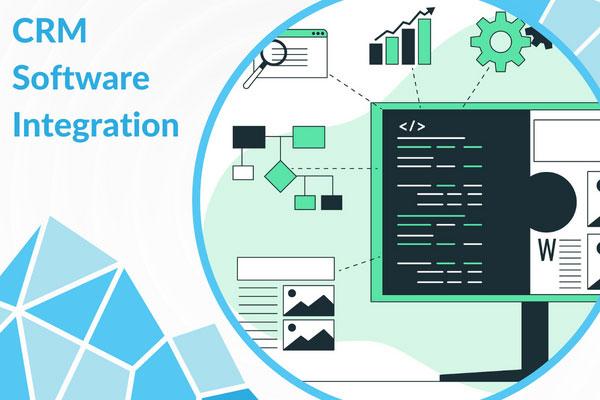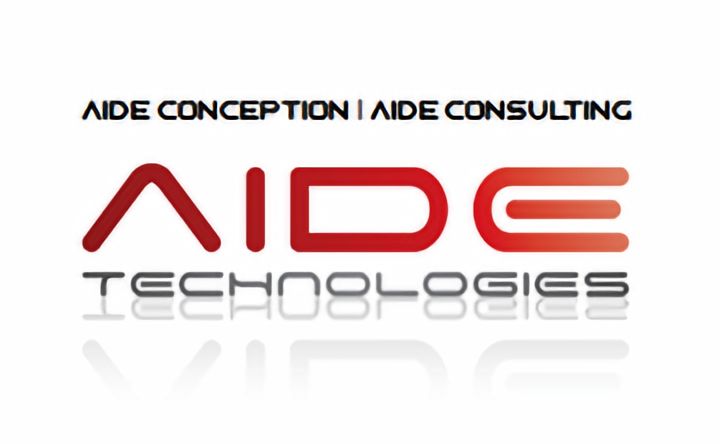10 Best CRM Software in Singapore for Excellent Sales and Customer Relationship Management
Customer relationship management (CRM) is computer software that aids businesses in maximising contact and sales efforts with their customers. CRM is not just a contacts list; it allows your staff to establish connections more successfully and deliver the greatest customer experience from start to conclusion.
Any customer-facing position within a firm must handle CRM data insights, which is an essential function. As the importance of audience data grows, so does the amount of information that companies must manage.
If you're on the fence about CRM software for your business, this article is for you. We'll go over what benefits CRM can bring to businesses of all sizes, how you know if your business needs a CRM, and what factors should be considered when choosing which CRM product and company is best for you.
Take a look at our top CRM software providers build, improve, and manage your customer relationships.
How to Select the Best CRM Software That Encourages Customer Retention and Loyalty
CRM software is a customer relationship management tool that helps businesses manage their customer data. It aids businesses in aggregating, organising, and analysing consumer information data to better manage customer interactions.
Having a thorough understanding of your target audience is one of the most powerful tools you have for growing your business. Whether you're developing marketing strategies or sales approaches, having a strong grasp on who your customers are and what they want is crucial to success. The information you need to know about your customers' preferences is found and organised effectively: What products they adore, what they're searching for, the communications that tell them what they need to know, and where you're still falling short.
Moreover, it not only enables enterprises to track and manage customer interactions, sales, and marketing activities. You also gain access to important information about your customers and possible clients when you establish an internet presence for your organisation. Using a CRM can help you build strong relationships with customers, track their preferences, and set up automated marketing processes for consistent personalised interactions.

Benefits of Using the Right CRM Software
A CRM software can offer your business several potential benefits, including:
- Improved customer communication and support
CRM software can help you manage customer communication more effectively, providing a centralised platform for storing important customer information. This can, in turn, lead to better customer support and satisfaction levels. Loyalty, which not only means repeat purchases, increases the chance of customers completing complementary purchases or service upgrades.
- Increased sales and conversions
By tracking customer interactions and identifying areas of improvement, CRM software can help you boost your sales figures and conversion rates. The marketing team utilises audience segmentation and effective content delivery by giving them the time and resources to focus on brand awareness.
- Greater insight into customer data
With CRM software, you’ll better understand customers through data analysis. This valuable customer insight can then inform your marketing and sales strategies in the future. Customer acquisition becomes more feasible because of the available data from returning customers. Sales reps create profiles that are used for targeted campaigns.
- More efficient marketing efforts
With CRM software in place, you can easily track the performance of your marketing campaigns and make necessary adjustments to improve their effectiveness. This is useful for conversion of leads and retention of customers because there are features that will help identify processes that may be lacking or holding up customer support.
- Enhanced team collaboration
CRM software can promote greater collaboration within your team by providing a centralised platform for storing customer information and communications. There is a clear information about which leads need to be prioritised, an accurate and updated source of truth for all customer information, a visible sales team activity performance, and automatic or customised reporting.
- Improved customer retention rates
By developing stronger relationships with your customers and providing them with better support, CRM software can help you retain more customers in the long run. New and returning customers get quality service no matter where they are in the cycle. Providing their actual needs and dealing with issues in a timely manner increases the chances of getting more business in the future.
- Greater scalability
As your business grows, CRM software will be able to scale up seamlessly to accommodate your increased needs. Any business size or type will enjoy core features and additional functionalities without having to worry about investing in more hardware or software. The software package can be upgraded and used immediately if the business adds more users or requires more CRM tools.
- Reduced operational costs
CRM software can help you streamline your business processes and reduce your reliance on manual tasks, reducing operational costs. Its features lets your team take into account each unit of the products and create analyses or reports to determine which sell better than others. Production and investment in new products are easier and optimised because you know exactly what the customers want to buy.
- Increased security
With CRM software in place, you can rest assured that your customer data is securely stored and protected. Most providers have different encryption methods to secure information. Data backups, access permissions, passwords, and monitoring of CRM data activity can also be included during implementation of the software.
- Competitive customer services
By implementing CRM software, you’ll be able to stay ahead of the competition and better meet your customers' needs. The enhanced customer satisfaction and high retention rates create a good reputation in the marketplace, therefore increasing the value of your company.

10 Signs Your Business Needs a CRM Software
Finding the right methods to handle customer experience is based on how the business operates and sells it products or services. Using these two key points, here are signs that your organisation needs a CRM software:
- You're struggling to keep track of customer interactions and data. You do not have enough tools to see the big picture and understand the customer journey. Monitoring and analysis require understanding of interaction history, preferences, and previous purchases.
- You're finding it challenging to nurture leads and close deals. There is no method to sending the right content to the right people when promoting products or services. Marketing, which is crucial for small businesses, takes up a lot of time when creating tailored messages to specific segments of your target audience.
- Your team is taking a long time completing manual tasks instead of selling. While collecting data is important for generating leads, the repetitive tasks associated with it take up a lot of time that could be used instead for pursuing those leads.
- You may be losing out on potential customers due to a lack of follow-up. Managing a lot of data using separate tools increases the chance of information getting lost in the shuffle.
- You don't have visibility into your sales pipeline or sales forecasting. There are no methods for testing, learning, and iterating on campaigns. While there are tools that can be accessed online, the features are limited if it is subscription-based.
- You're not making the most of your customer interaction. There is no central hub for all of the audience data that can be gathered and analysed. The team needs to pull up information manually from different sources to identify patterns in customer purchasing behaviour.
- Your customer service team is overwhelmed and workflow automation is poor. There is no clear connection and access to all key marketing channels. There is no way to access relevant data with just a few clicks, create reports and send them to different sales members, or classify data based on criteria (such as age, gender, and location).
- You're not delivering a consistent customer experience across channels. Segmenting the audience based on shared characteristics takes a lot of time without automation of data and pre-built segments. As a result, customers may not be getting the same message from and experience with your company.
- You may be missing opportunities to upsell and cross-sell products or services. There is no effective inventory management or supply chain management method. Recommending products or services that returning customers may be interested in will take a while to formulate without automation.
- Your company has no effective method of measuring or managing your customer relationships. It is challenging to monitor customer engagements manually across every touchpoint, identify process bottlenecks, or track sales representatives performance.

What Customer Relationship Management Software Features Do You Need?
When choosing a CRM software program, it's essential to consider the most critical features of your business. Here are some of the most popular CRM software features to look for:
- Contact Management
This feature allows businesses to store and organise customer contact information in one place. Companies can easily keep track of customer phone numbers, addresses, email addresses, and other essential details with contact management. It also allows businesses to set up automatic follow-up tasks and reminders, so nothing falls through the cracks.
- Lead Management
Lead management helps businesses track and manage leads throughout the sales process. Companies can see which tips are the hottest and prioritise them accordingly with lead management. Sales reps anticipate needs based on historic trends and create better timing for sending product or service promotions. It is also useful for cross-selling products through highlighting enhancements or alternatives and identifying which customers are profitable.
- Opportunity Management
Opportunity management is a crucial feature for sales teams. This feature allows sales reps to track opportunities throughout the sales cycle and see which ones are most likely to close. It also includes features like pipeline tracking and forecasting so businesses can see where they're at in the sales process and plan accordingly.
- Customer Data Management
Account management is a must-have CRM software feature for businesses that work with multiple clients or customers. Businesses can easily keep track of important details like contact information, account history, and project deadlines with account management. It is also used for determining customers’ preferences, opinions, and purchasing habits to create profiles for individuals or groups.
- Quotation Management
Quotation management is another essential feature for businesses that deal with quotes and proposals. This feature allows businesses to create, manage, and track quotes and proposals in one place. With quotation management, companies can easily see which quotes have been sent, which ones are still pending, and which ones have been accepted or rejected.
- Reporting and Analytics
CRM software programs usually come with various built-in reports so companies can track their progress over time. The software presents data that can be divided into larger categories of data, such as new leads, prospects, website engagement, problem tracking, additional purchases, and spending. Additionally, many CRM software programs come with dashboards and visualisations so businesses can quickly see how they're doing at a glance.
- Customisation and Integration
Customisation and integration are essential for businesses that want to tailor their CRM software to their specific needs. Most CRM software programs offer some degree of customisation so companies can add or remove features as needed. CRM software programs can be integrated with other business applications, such as accounting software or email marketing platforms. The data is also cross-referenced with other software to better manage different channels.
- Mobile Access
Mobile access is another essential CRM software feature. This feature allows businesses to access their CRM data from anywhere, at any time. With mobile access, companies can stay up-to-date on their customer relationships even when they're out of the office. Additionally, many CRM software programs come with mobile apps so businesses can manage their customer relationships on the go.
- Pricing Management
Pricing management is a must-have for businesses that want to keep track of their pricing plans and discounts. This feature allows businesses to create and manage pricing plans in one place. Companies can easily see which discounts are available and when they expire with pricing management. Pricing management also helps businesses keep track of their revenue and expenses to make informed decisions about their pricing plans.
- Security and Permissions
Security and permissions are essential for businesses that want to protect their data. Most CRM software programs have various security features, such as password protection and data encryption. Many CRM software programs allow businesses to set up different access levels for other users. This way, companies can control who can see and edit their customer data.

Integrating CRM Software with Other Systems
There are many benefits to integrating CRM software with other systems. Doing so can improve data accuracy and completeness, reduce manual data entry, and allow automatic updates between systems. Additionally, integration can help to ensure that customer information is accessible from anywhere within an organisation.
When selecting a CRM system, it is vital to consider its ability to integrate with other software programs. Some CRM systems offer pre-built integrations with popular business applications, while others require custom development. Depending on your organisation's needs, one type of integration may be more suitable than another. This will minimise the amount of work required to get the CRM system up and running and make it easier to keep data synchronised between the different applications.
In some cases, it may be necessary to use a third-party application integration platform to connect a CRM system with other business applications. This platform provides a central location for managing all integrations and can automate many tasks to keep data synchronised.

How to Find the Best CRM Software for Business
CRM solutions that are geared towards small businesses are designed to give the core features and functionalities. Managed or customised solutions on the other hand are tailored to address specific needs of a business or make integration smoother. To determine which CRM software is right for your organisation, here are the factors to consider:
- Features and Functionalities
There are several application tools that track, manage, and automated CRM tasks. However, choosing the package that suits the needs of the end-user is based is different for every business. Small businesses will do well with features such as customisation, reporting capabilities, security, integration support, easy installation, and intuitiveness.
- Robust Integration
A lot of businesses already use one or more types of software. It is important therefore to pick a CRM solution with integration tools that have zero programming or no-code architecture. This should not require the end-users to undergo complicated training and configuration of the systems to meet their needs. Setting up the software should only require the right permissions, security parameters, and server or application programming interface compatibility before integration.
- Reputation and Experience
A trustworthy provider will not immediately recommend a software without an evaluation of your processes and existing systems. They will also have a clear explanation of the products, renewable licenses, rates or packages, and the implementation process. Make sure to read testimonials from industry-specific clients to get an idea of their experience with the software.
- After-Sales Support
The provider should instil trust in clients by assuring a continuous support and after-service sales to deal with issues in the future. Software needs to be updated regularly to ensure security, relevant data, and fewer bugs.
In today's commercial climate, getting more consumers into the loop is common and is little more than a problem. Installing a CRM system can substantially enhance your organisation's performance and help you fight the current marketing and business methods. As a result, in today's market, every firm should be equipped with a comprehensive CRM system to meet all of its commercial demands.
To understand the different features and functionalities of CRM software, view our highly-rated CRM software providers in Singapore to help your business pick one.
Latest Becozon Offer
Boost your business with these exclusive deals by our esteemed Becozon partners
Looking for a CRM software?
Get customisable, cloud-based sales and operations CRM software suitable for any industry. Contact us for a demo today!
Contact Us




